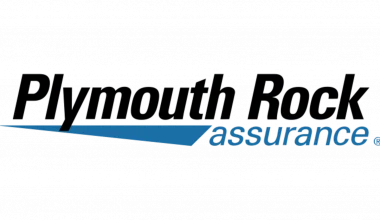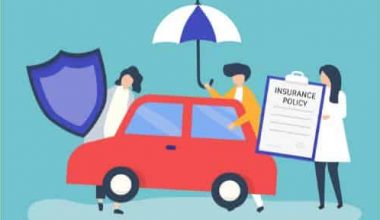The state of Wisconsin requires every driver to have car insurance coverage. If you cause an accident and are proven liable, your liability insurance will only compensate the other driver and any passengers in their vehicle. Every licensed driver in the state of Wisconsin must also carry legal liability insurance at all times. Read further to get more information about Wisconsin car insurance: the rates and the requirements needed to get one for your car. Enjoy the ride!
What Is Car Insurance?
An insurance policy for a car is a legally binding contract between an insurance provider and a driver. In exchange for payment of a premium, the insurer agrees to cover policyholders in the event of legal action brought by a third party arising out of an accident involving bodily injury, property damage, or both.
Who Is Protected by Car Insurance and How?
Anyone who has the named insured’s consent to use the vehicle, including the spouse, any legally resident relatives, and anyone else, is covered under the personal car policy.
What Are the Different Parts of the Car Insurance?
The “declarations page” is the first part of the policy, and it details the types of coverage and their respective cash amounts. The actual contract wording follows, setting forth in detail the rights and obligations of both the insurance provider and the insured. A third section, the endorsement section, may be included in the policy to make adjustments or additions. Although laws mandate a few standard protections, individual policies might vary greatly. Any policy you are given should be read as soon as possible after you receive it. Get in touch with your insurance provider or agent for more information.
Wisconsin Car Insurance
Wisconsin is a tort (fault) state for car insurance purposes. The driver who caused the accident must pay for any damages to the other car and all medical bills, missed earnings, and other expenditures incurred as a result of the collision. When the other party is at fault in a car accident, victims in a tort state have three choices. The first is to report the incident to their insurance provider, who will subsequently file a claim against the policyholder of the negligent motorist. The second option is to file a claim with the negligent driver’s insurance company; the third is to file a personal injury lawsuit in court.
Wisconsin’s personal injury lawsuit deadline is three years from the time of the accident. If you miss this date, your lawsuit will be dismissed. If someone passes away as a result of their injuries sustained in an car crash, their estate’s personal representative has three years from the date of death, not the date of the accident, to file a wrongful death claim.
Wisconsin Minimum Car Insurance Requirements
The state of Wisconsin requires every driver to have liability insurance. If you cause an accident and are proven liable, your liability insurance will only compensate the other driver and any passengers in their vehicle. In Wisconsin, the bare minimum for liability insurance is:
- One victim’s bodily injury liability is limited to $25,000.
- Multiple victim bodily harm liability limits of $50,000
- Liability for accidental property damage is capped at $10,000.
When the other driver does not have insurance or if there is a hit-and-run, uninsured motorist coverage will pay for any medical expenses that result from the accident.
- Personal injury protection of $25,000
- In the event of an accident, you and your passengers will each be covered for up to $50,000 in medical expenses.
Injuries sustained as a result of an accident caused by a driver with insufficient insurance are covered under underinsured driver coverage. After the policyholder’s deductible has been met, this provision will take effect.
- Individual bodily harm liability is limited to $50,000.
- Your bodily injury is covered up to $100,000 per incident with passengers.
- Wisconsin law enforcement officers can request proof of car insurance from anyone they pull over.
Wisconsin has established minimal requirements for car insurance, but these limits are not intended to be a recommendation. In order to safeguard your resources and the well-being of your passengers, you may purchase additional insurance beyond what is required by law.
Wisconsin Car Insurance Information
Wisconsin law mandates that drivers carry Bodily Injury Liability (BIL) insurance in the amounts of $25,000 per person and $50,000 per accident, as well as Property Damage Liability (PDL) insurance in the amount of $10,000. When the insured is at fault in a collision, BIL pays for the other party’s medical costs and other related expenses, whereas PDL covers the other party’s car and other property damage. Accident-related costs are not covered by either BIL or PDL.
Uninsured motorist coverage must be purchased in amounts of at least $25,000 per person and $50,000 per accident in Wisconsin. There is no legal requirement for underinsured motorist coverage. Keep in mind that these are just the bare bones of what you need to be covered in the event of an accident; in reality, you should probably carry more in order to safeguard your financial security. Although Wisconsin law does not demand it, lenders will typically insist on collision and comprehensive coverage for cars that are financed or leased.
Wisconsin SR-22 Coverage Insurance
In Wisconsin, drivers who have their license suspended due to moving infractions must have their insurance company file a proof of financial responsibility known as an SR22 form with the Wisconsin Department of Transportation (WDOT). If your license or registration has been revoked, or if your insurance has been suspended because you drove without it, you will need to file an SR-22. For first-time DUI offenders in Wisconsin, an SR-22 is not required. After your license is reinstated, you have three years during which you must maintain SR-22 coverage.
Wisconsin drivers are allowed to post $60,000 cash or a surety bond with the WDOT as an alternative to SR-22 insurance.
Statistics on Wisconsin’s Drivers
Wisconsin is home to about 5.8 million people, and about 4.2 million of them have driver’s cards. Wisconsin has always been a haven for nature lovers due to its location between Lake Superior and Lake Michigan.
Agriculture, aerospace, advanced manufacturing, health, forestry, energy, and information technology are also among the state’s most important businesses. Wisconsin is the leading state in the United States in the production of organic oats, maize, and beans, despite its reputation as America’s Dairyland, from which the term “Cheesehead” derives.
It is a great place to go boating, camping, hiking, fishing, horseback riding, swimming, and more in the summer, and snowshoeing and cross-country skiing in the winter. There is a vast trail system throughout the state for cyclists and hikers to enjoy. So, there is a large amount of drivers in the state.
Best Wisconsin Car Insurance Companies
The following are some of the best Wisconsin car insurance companies you can go for:
#1. USAA
If you are a military veteran looking for car insurance in Wisconsin, USAA is your best option. USAA is a great option not only because of its low prices but also because of the excellent customer service it offers to military personnel, veterans, and their families. Veterans, active-duty military members, and their families can greatly benefit from its inexpensive prices and high-quality customer service.
USAA also provides accident forgiveness after five years of no claims, in addition to basic policy options like roadside assistance and rental car coverage. There are several ways to save money as a USAA member and policyholder. Savings of up to 60% are also possible through vehicle storage. Reducing your mileage and parking your car on a military base are two other ways to save money. You can save even more money by bundling your car insurance with your homeowner or renters coverage.
#2. Travelers
If you’re a new car owner in Wisconsin, Travelers is your best option for auto insurance. Travelers stand out from the competition by offering the lowest prices in the state and a wide variety of coverage options. As an added bonus, Travelers also offers Premier New Car Replacement® coverage. If your car is totaled within the first five years of its life, this insurance will replace it with a brand-new one. Your peace of mind in receiving the same make and model after an accident is ensured in this way. You may get the best protection for your money with this company, and their car insurance rates are the lowest in Wisconsin.
Travelers’ Premier New Car Replacement® coverage is what sets them apart from competitors. This optional coverage will replace your vehicle with one of the same make and model if it is ruled a total loss within the first five years. If you finance or lease your vehicle, Travelers also offers gap insurance as a safety net. In the event of a total loss, this might cover any funds needed to settle the loan.
#3. Chubb
If you are a Wisconsin driver who has received citations, accidents, or DUIs in the past, Chubb is the finest car insurance company for you. If you file claims regularly, you will appreciate this company’s excellent customer service and claim administration. Chubb also provides excellent car insurance coverage for the cost of renting a car in Wisconsin. Optional coverage that pays for a rental car in the event your own vehicle is rendered undrivable due to an accident that is covered by your policy.
Chubb also provides coverage directly from the manufacturer, known as OEM coverage. Most car insurance companies don’t offer this endorsement. When fixing an automobile, it’s worth it to invest in factory-authorized components and methods. Another feature that sets Chubb apart is agreed-value coverage, which allows you and the insurer to settle on a price for your vehicle before the policy even begins. If your property is stolen or destroyed beyond repair, you will be compensated for the agreed-upon amount.
#4. Acuity
When it comes to auto insurance for seniors in Wisconsin, Acuity is your best option. The service is mid-priced, falling somewhere between cheap and costly, and the customer service is excellent. Add-on endorsements are available through Acuity and are especially helpful for senior drivers. Towing, labor, and other unexpected costs might be covered by purchasing roadside assistance coverage.
If your car is damaged and you can’t drive it, the rental car coverage will pay for your transportation costs, whether they be for a taxi, a bus, or a ridesharing service. This service provider also offers supplemental insurance for one’s own vehicle.
Read Also: THE BEST CHEAP CAR INSURANCE IN WISCONSIN FOR 2023
How to Find the Best Car Insurance in Wisconsin
Here is how to find the best car insurance in Wisconsin:
- Research customer service reputations in Wisconsin
- Compare quotes
- Find the coverages you want in Wisconsin
- Check financial stability ratings
Is it Required to Have Car Insurance in Wisconsin?
Yes. When driving in Wisconsin, all motorists are obliged to carry proof of financial responsibility in the form of an active auto insurance policy or other security, such as a surety bond, personal cash, or a certificate of self-insurance.
What Is Uninsured Motorist Coverage?
If you or a member of your family are injured in a car accident with a driver who does not have insurance or who flees the scene of the accident, uninsured motorist (UM) coverage will pay for your medical expenses. You and your loved ones are protected if you are hit by an uninsured or hit-and-run driver while walking. It shields you from financial ruin by guaranteeing compensation for harm done by others. Bodily injury liability insurance coverage of at least $25,000 per person and $50,000 per accident is mandated by law.
If you believe you need an extra safety net, you can always buy more than the state-mandated minimum. The uninsured motorist policy does not protect your vehicle’s property value, and neither is the other driver. If your insurance company has to pay you money because of another driver’s carelessness, it may pursue legal action against that driver.
How Does Coverage for Drivers Who Are Underinsured Work?
If the at-fault party does not have adequate bodily injury liability insurance, underinsured motorists (UIM) coverage will kick in and protect you and your passengers up to the policy’s limits in the event of an accident. The maximum amount due is determined by subtracting these two caps.
The purchase of underinsured motorist protection is optional. Along with the insurance itself, a notice of coverage availability must be provided. Insurance may be denied. Limits of at least $50,000 per person and $100,000 per accident, however, are obligatory if requested.
What Exactly Do You Get with Collision Coverage?
When your car hits anything and has physical damage, collision insurance will help pay for the repairs. If it collides with something else or if it flips over. If you’re involved in an accident, collision insurance will pay for repairs up to the pre-accident worth of your car. Also, if you cause an accident and suffer damages, your insurance company will still cover the costs.
Your car’s model, year, and manufacturer all play a role in determining your collision insurance cost. Before deciding to acquire this insurance, you should think about how much a similar vehicle would cost and whether or not you can afford it. If the value of your car has dropped or you have enough money saved to buy a new one, you may not require collision insurance.
Why Does One Have to Pay so much for Car Insurance?
Classifications are used by insurance companies to sort drivers into different rate brackets. Multiple factors are used to categorize drivers, including but not limited to age, gender, marital status, where the car is kept, driving history, vehicle type and model, prior insurance coverage, and annual miles driven. A poor driving record, for example, has been proven to increase the likelihood of an accident; thus, drivers who fall into this category must pay higher car insurance rates in Wisconsin. Some of the factors used to determine your categorization (such as your age and gender) are beyond your control, but you can influence others (such as your driving record and the type of vehicle you drive).
Will I be Covered by My Car Insurance Coverage in Wisconsin if I Drive in Another State with Higher Minimum Liability Limits than in Wisconsin?
The minimum limitations mandated by the state laws in which you are driving will be added to the limits provided by your Wisconsin policy.
Do I Need to Notify My Insurance Company if I Add or Change a Car?
Yes, however, there are constraints you should be aware of. When you add a car to your policy, it is automatically covered to the same extent as the vehicle with the most comprehensive coverage. Consider the fact that you already own two cars. Only liability insurance is carried. The broader coverage provided by the policy is included in the other one, which also has liability, collision, and comprehensive coverage. Accordingly, if you decide to purchase a third car, it will already be covered by liability, collision, and comprehensive insurance. The coverage status of a substitute vehicle is identical to that of the vehicle it replaces.
Can I Require the Insurance Company to Replace My Car?
One cannot rely on personal car coverage to replace another. The policy will pay for the car’s real cash value. Your car is worth what the market will bear at the time of the accident, and that’s what’s known as its actual cash value (ACV). The insurance company’s responsibility, then, is to repair the car at its real cash value rather than its replacement cost.
The Term “Comparative Negligence” Means What Exactly?
Because of Wisconsin’s comparative negligence statute, fault is often divided among multiple parties. The percentage of fault is the foundation of the comparative negligence rule. Damages recoverable from the other party are lowered by the percentage of negligence attributed to you, but only if your level of carelessness is less than that of the other party. If your level of carelessness was higher than the other party’s, you cannot sue for damages.
Can My Car Insurance Company Refuse to Renew My Policy Because of My Credit History?
Personal lines insurance underwriting criteria may include credit history considerations. Insurers in Wisconsin, according to the state’s Office of the Commissioner of Insurance (OCI), are prohibited from rejecting applications, canceling new policies within the first 60 days of coverage, or not renewing existing policies based solely on credit information obtained through credit reports or credit scoring mechanisms.
Final Thoughts
Getting your car insurance is very important as a driver in Wisconsin. You also need to do good research about all the car insurance companies around you to be sure of the best that suits your needs and budget. I do hope this article was helpful.
- Renters Insurance Wisconsin: Coverage, Cost & Finest Options
- Business Car Insurance: What Is It, How It Work & Best Optons
- BEST CHEAP CAR INSURANCE FOR NEW DRIVERS 2023
- COLLISION INSURANCE: What Is It & What Does It Cover?






